

Sustained growth in international tourism despite challenges
Demand for international tourism remained robust in 2016 despite challenges. International tourist arrivals grew by 3.9% to reach a total of 1,235 million, according to the latest UNWTO World Tourism Barometer. Some 46 million more tourists (overnight visitors) travelled internationally last year compared to 2015.
2016 was the seventh consecutive year of sustained growth following the 2009 global economic and financial crisis. A comparable sequence of uninterrupted solid growth has not been recorded since the 1960s. As a result, 300 million more international tourists travelled the world in 2016 as compared to the pre-crisis record in 2008. International tourism receipts grew at a similar pace in this period (complete 2016 receipts results will be reported in May).
“Tourism has shown extraordinary strength and resilience in recent years, despite many challenges, particularly those related to safety and security. Yet, international travel continues to grow strongly and contribute to job creation and the wellbeing of communities around the world”, said UNWTO Secretary-General Taleb Rifai.
By region, Asia and the Pacific (+8%) led growth in international tourist arrivals in 2016, fuelled by strong demand from both intra- and interregional source markets. Africa (+8%) enjoyed a strong rebound after two weaker years. In the Americas (+4%) the positive momentum continued. Europe (+2%) showed rather mixed results, with double-digit growth in some destinations offset by decreases in others. Demand in the Middle East (-4%) was also uneven, with positive results in some destinations, but declines in others.
Recalling that 2017 has been designated by the United Nations the International Year of Sustainable Tourism for Development, Mr. Rifai said “we need to work closer together to harness the contribution of tourism to economic growth, social inclusion, cultural and environmental preservation and mutual understanding, particularly when we live in times with such a deficit of respect and tolerance”.
Experts remain optimistic about 2017
The latest survey of UNWTO’s Panel of Experts shows continued confidence in 2017, with the large majority (63%) of the some 300 respondents expecting ‘better’ or ‘much better’ results than in 2016. The Panel score for 2017 virtually equals that of 2016, so growth is expected to be maintained at a similar level.
Based on current trends, the outlook of the UNWTO Panel of Experts and economic prospects, UNWTO projects international tourist arrivals worldwide to grow at a rate of 3% to 4% in 2017. Europe is expected to grow at 2% to 3%, Asia and the Pacific and Africa both at 5% to 6%, the Americas at 4% to 5% and the Middle East at 2% to 5%, given the higher volatility in the region.
2016 Regional Results
Results in Europe were rather mixed with a number of destinations affected by safety and security challenges. International arrivals reached 620 million in 2016, or 12 million (+2%) more than in 2015. Northern Europe (+6%) and Central Europe (+4%) both recorded sound results, while in Southern Mediterranean Europe arrivals grew by 1% and in Western Europe results were flat.
Asia and the Pacific (+8%) led growth across regions in both relative and absolute terms, recording 24 million more international tourist arrivals in 2016 to total 303 million. Growth was strong in all four subregions, with Oceania receiving 10% more arrivals, South Asia 9% more and North-East Asia and South-East Asia both 8% more.
International tourist arrivals in the Americas(+4%) increased by 8 million to reach 201 million, consolidating the solid results recorded in the last two years. Growth was somewhat stronger in South America and Central America (both +6%), while the Caribbean and North America recorded around 4% more arrivals.
Available data for Africa points to an 8% rebound in international arrivals in 2016 after two troubled years, adding 4 million arrivals to reach 58 million. Sub-Saharan Africa (+11%) led growth, while a gradual recovery started in North Africa (+3%).
The Middle East received 54 million international tourist arrivals in 2016. Arrivals decreased an estimated 4% with mixed results among the region’s destinations. Results for both Africa and the Middle East should be read with caution as they are based on limited available data.
Note: All results in this release are based on preliminary data, as reported by the various destinations around the world, and UNWTO estimates of still-missing data. UNWTO will continue to collect data and will present more comprehensive data by country in the April issue of the UNWTO World Tourism Barometer.
Useful links:
UNWTO Tourism Highlights, 2016 Edition
International Year of Sustainable Tourism for Development 2017
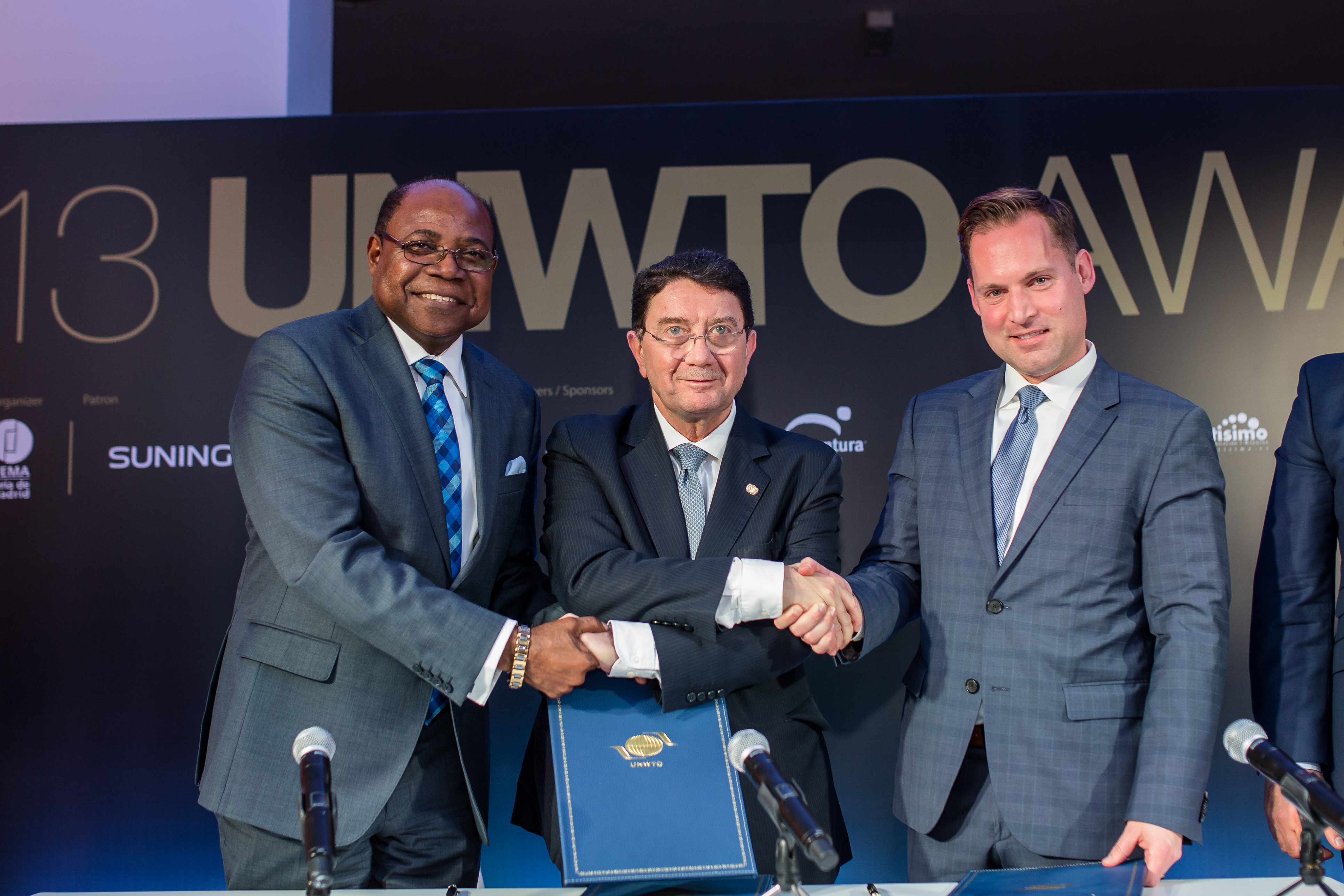
Minister Bartlett Signs Agreement for Jamaica to host UNWTO Conference in November
KINGSTON, Jamaica; January 16, 2017: Jamaica’s Minister of Tourism, Hon. Edmund Bartlett today (January 16, 2017) signed an agreement at the Palacio Neptuno in Spain, to host a major global conference to commemorate the 2017 United Nations World Tourism Organization’s (UNWTO) International Year of Sustainable Tourism for Development.
The event, which is a collaborative effort between the Government of Jamaica, international development firm Chemonics International and the UNWTO, will be staged from November 27 to 29 at the Montego Bay Convention Centre, St. James.
Speaking during the historic signing ceremony, Minister Bartlett expressed that he was honoured to have participated on behalf of the Prime Minister of Jamaica, to concretize arrangements to host such a prestigious event in Jamaica.
“This signing will see an international conference of great magnitude and importance to global tourism, being hosted in Jamaica. We look forward to showcasing our destination but more so within the context of sustainability and the building of public-private-partnerships,” said Minister Bartlett.
Secretary General of the UNWTO, Taleb Rifai shared that the conference will kick-start discussions to create on-the ground activities to develop tourism across the globe from such partnerships.
“We keep talking about the need for public-private-partnerships, but we fail to translate that on the ground in any effective manner. Minister Bartlett together with Ibrahim Osta, Chief of Party for Building Economic Sustainability through Tourism at Chemonics International, will together cooperate in making and designing this very important meeting in Jamaica towards the end of this year,” said Secretary General Rifai.
The agreement is of great historical importance because it signals the first time that the UNWTO will stage a world conference on tourism in the Caribbean or the Americas.
Minister Bartlett, who is also the Chairman of the Board of Affiliate Members of the UNWTO, described the event as a very unique opportunity as it will also allow the world’s spotlight to be on Jamaica, and by extension the Caribbean, which is heavily dependent on the economic power of tourism.
“Jamaica is a part of the Caribbean archipelago of states which is the most tourism-dependent region on earth. It means therefore, that to be positioned to invite the world to see us in the practice of sustainability tendencies, embracing best practices, and showcasing how we have been able to manage, and grow and build the economic well-being of our people is something, that for us is a once in a lifetime opportunity,” said Minister Bartlett.
Two of the expected deliverables from this conference will be an Outcome Declaration and the publication of the second UNWTO Affiliate Members Global Report on Public-Private-Partnerships. The UNWTO will also present a report to the UN General Assembly in 2018, with regards to the activities of the International Year of Sustainable Tourism for Development, of which the conference will play a major role.
At a meeting prior to the signing, Minister Bartlett highlighted the great strides Jamaica has made in forming public-private-partnerships in the spirit of sustainable tourism for development, through the Tourism Linkages Network model and financial support provided specifically for Small and Medium Tourism Enterprises (SMTEs).
“Tourism is the fastest way to transfer money from the rich to the poor. We can certainly do this effectively through our Linkages initiatives,” shared the Minister.
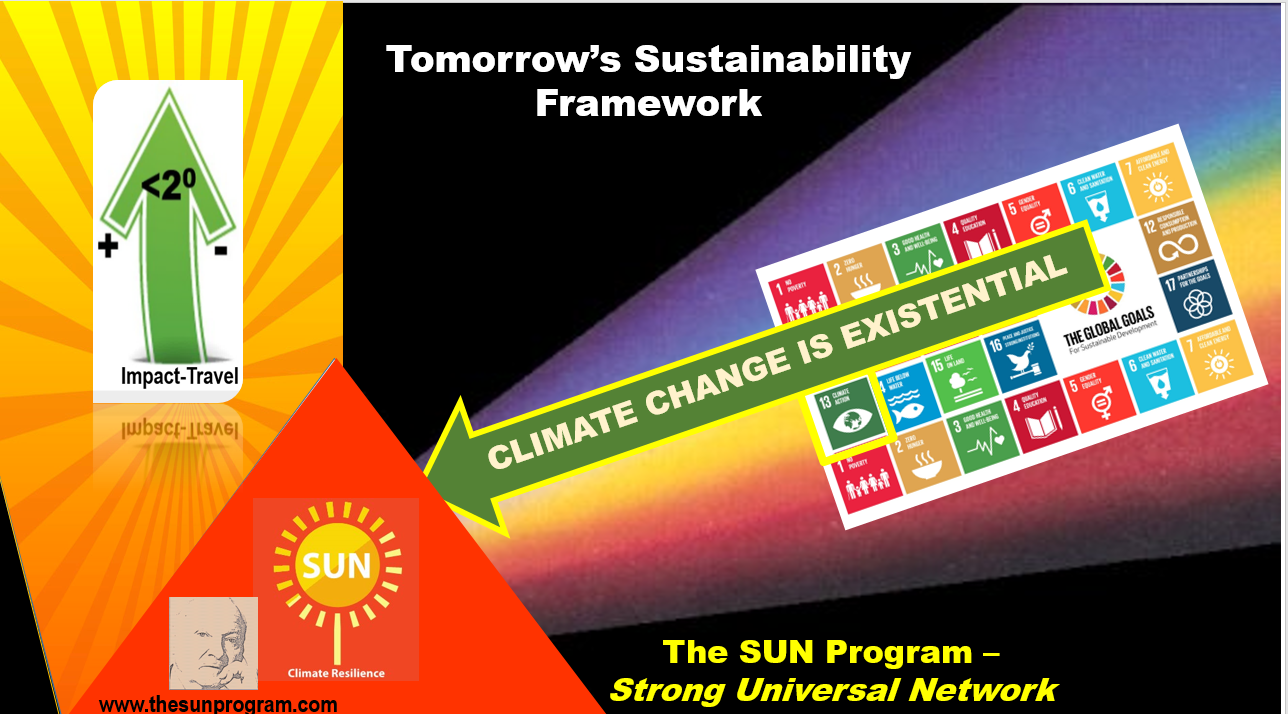
SUN focusing on eXistential in 2017 – the International Year of Sustainable Tourism for Development.
At the start of the International Year of Sustainable Tourism for Development I want to pose a seemingly ridiculous question – “Can you have too much of a good thing”?
The Sustainable Development Goals (SDGs) stand as one of the greatest achievements of our time – the culmination of more than half a century of increasing collective commitment to a fairer more equitable world, based on economic, social and environmental sustainability. An evolving, 15 year, locally led framework of 17 global SDGs, with 169 targets and 304 Indicators that addresses every aspect of life and the planet.
The SDGs have been cleverly designed to galvanize regional, national, and local stakeholders to make their own responses – for air, oceans, land, cities, industries, rural communities, indigenous people etc. Each with their own vision of the priorities, and version of the action needed. That means trillions of personal, corporate, NGO and government actions must start changing all over the planet: each calibrated to its own circumstance, ambition, and pace of change. Ultimately it will transform all production, consumption, and investment.
I would argue however, that one of these 17 Goals stands out from the rest – namely Goal 13 Climate Change – and for the simple reason that it is existential. Existential means that life on the planet is fundamentally threatened. Without a fix, future generations will freeze or fry. And the intensifying impacts of extreme climate will severely aggravate many other SDG challenges. Which is why, the Paris Agreement with its 2050 national carbon reduction targets must be implemented now and intensified every 5 years for several decades.
For this year, the focus of the world’s largest industrial activity Travel & Tourism will be on how to link its sustainable development strategies with the SDGs. At the same time adapting to the alignment that the rest of humanity is making, for moral, business and social reasons. We will see new conferences, declarations, indicators, and coalitions; engaging public, private and civil society stakeholders. The entire year has been conceived and constructed to intensify and accelerate the Travel & Tourism intersect with all the SDGs and the scope and scale of the UN’s IYSTD Resolution is massive. And rightly so – to be a real force for good, we have to be up with the mainstream curve on building sustainability into all our growth aspirations.
And it is here that my question becomes clearer – how to keep existential Climate Resilience front and centre in our sector, in a year when Travel & Tourism sustainability is everyone’s flavour of the month and where all of humanity’s agenda is shifting to all of the SDGs. And how to make sure, going forward, that our sectoral approach to climate response tracks the ever-increasing existential demands of the Paris accords, as well as bridging the gaps between national/ international, global/local, and science/operational, that will be at the core of real change.
We believe SUN (a legacy program for Maurice Strong one of the great architects of Sustainable Development) will help, by its total focus on the intersect of existential Climate Change with the response and resilience of the Travel &Tourism Sector.
After several years of planning, the proof of concept SUN Centre will be launched in 2017 in the National Park in Limburg, Belgium – supported by local community stakeholders. It’s planned as the European hub of a global network of prefabricated, solar powered, cloud connected centres – focused on community climate resilience and travel.
There will be many aspects of the SUN experiment to set in place during 2017 – sourcing online data feeds, good practice and innovation: building links with the local community – particularly schools who we expect to be regular visitors: as well as preparing for platform content curation, global network operations and the like.
Our core collaborators are multidisciplinary and global, with lifetimes of commitment to Sustainability, Mobility, Tourism, Parks, Conservation and Infrastructure development – inside and outside the sector – see www.thesunprogram.com
We will work, at Board level, to ensure closest integration with the Hoge Kempen National Park through its ground-breaking environmentalist Director Ignace Schops who commissioned the Centre with us; as well as with the University of Hasselt Field Research Centre and its UNFCCC linked “Ecotron” Climate Research Program. Ignace’s vision as President of Europarc Federation will be an important point of focus for us, his concept of “Re-Connection, nature and community together, as well as his sustainability links as a Goldman award winner, Ashoka Fellow, Gore Ambassador and long-time IUCN member.
We will build on the relationship of SUN co-founder Felix Dodds with the UN Sustainable Development Goal Community, where he has been one of the key civil society architects – his recent book “Negotiating the SDGs” sets out a vision of their potential impacts and operations. Our collaboration goes back nearly 2 decades, cemented by a shared belief in the sustainable development philosophy of our friend and mentor Maurice Strong.
Tom Goldberg MBE, the Chair of the SUN-ARK company, former M.D. of global construction giant Atlas Ward, will bring the essential dimension of prefabricated building, solar power and efficient energy to our team. And I will reach out from my 4 decades of contacts in the sector with IATA, WTTC, UNWTO, WEF and now ICTP, to draw on worldwide thinking in this field.
We are determined that this will be a financially sustainable program and we know that there are fellow believers who see both the business and moral importance of the multi-decade transformation. We want to build long term relationships, not simply marketing plays.
But much as I believe that the SUN system will be a useful building block in the Climate Response of the “Travelism” ecosystem, there is still that nagging unanswered question of keeping the focus on the eXistential element of climate resilience amidst all the positive vibes of the SDG and the Tourism for Sustainable Development institutional enthusiasm of 2017.
For this reason, we will host a Strong Reflexion event in the fall of 2017 for the sole purpose of reviewing the intersect of existential Climate Change with the response and resilience of the Travel & Tourism Sector. It will coincide with the inauguration of the Limburg SUN Centre and will build on the experience of similar events held in recent years – including the IUCN led Strong Event prior to the Copenhagen COP.
We will also publish a new SUN “Existential Blog” monthly, to prepare for this event and to raise awareness afterwards – it will incorporate a wide range of views.
Last, but not least we will reflect this existential dimension in all our messaging, because if we don’t act now and keep acting, one day soon it will be too late.
Prof. Geoffrey Lipman
For further information on SUN, please visit: http://www.thesunprogram.com/
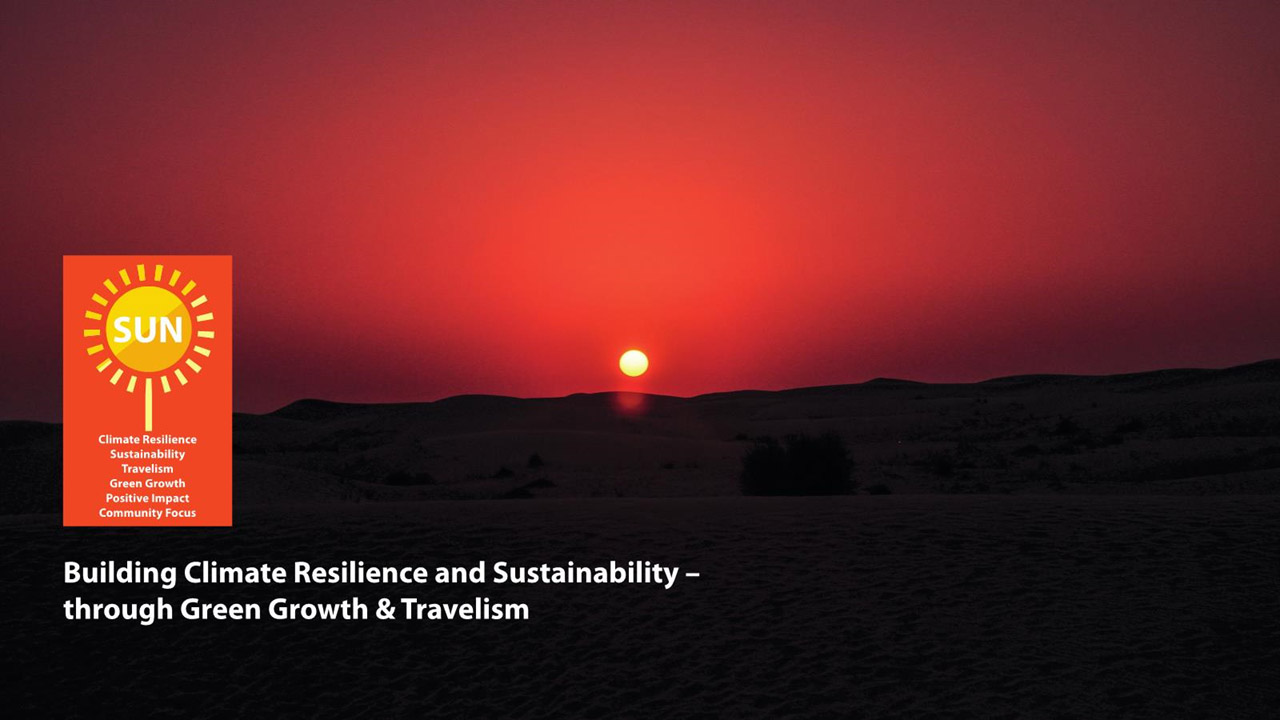
Dealing with climate change: Engage SUN
SUN – the Strong Universal Network – is a new movement to respond to existential climate change and supports the intensifying 2050 carbon targets of the Paris Agreement. It is a legacy of the late Maurice Strong, the visionary who led many historical sustainable development initiatives, including the 1992 Rio Earth Summit. He was a champion of climate resilience and green travel.
We are spearheading SUN to underscore the reality of climate change and the imperative of rapid, continuous response.
We advocate Impact-Travel – with green growth at the core; all impacts measured for sustainable management and long-range, local development paramount. But our focus in the evolving myriad of sustainable development goals (SDG) targets will be climate resilience.
We are developing an out-of-the-box, solar-powered, web-connected support system that every community can readily access, to shape climate adaptation through Impact-Travel. The global center will launch in 2017 in the Hoge Kempen National Park in Belgium, linked to Hasselt University’s Science Research Unit. We will expand the network to cover all UN regions in 2018, with global deployment for 2020.
Our centers and national nodes will become a new source of climate resilience facts, presentations, analytics, and innovation, with an emphasis on universities and national parks.
SUN is supported and managed by a Belgian Green Growth & Travelism Institute (GGTI) with a small management team and likeminded committed partners around the world. It has been financed by its founders to start up.
For more information, visit thesunprogram.com
The author, Professor Geoffrey Lipman, is the co-founder of SUN and President of the International Coalition of Tourism Partners (ICTP), a travel and tourism coalition of global destinations committed to quality service and green growth. For more information and to become a member of ICTP for free, visit ictp.travel.

What is not obvious yet in the race for the UNWTO Secretary General?
What is hidden from what is already obvious in the race for the next UNWTO Secretary general?
Candidates are heading to Madrid during the upcoming FITUR to introduce themselves, and specifically in Africa, the fight for Africa is becoming unpredictable.
The current Secretary General, Dr Taleb Rifai – a Jordanian national – has held the post for the past seven years and is due to step down at the end of 2017. Elections for the post are due to take place during the UNWTO Executive Council meeting scheduled to be held in Madrid in mid-May, 2017. Widely respected for his leadership of the Organisation, Dr Rifai is seen as a unifying figure whose legacy rests on the slow but steady rise in the profile and indeed the impact of tourism as a vehicle for the promotion of understanding between peoples and cultures.
SADC member states – including Seychelles – unanimously endorsed Dr. Mzembi’s (Zimbabwe) candidature in March 2016. African Heads of State and Government, meeting in Kigali, Rwanda, in July 2016, added their own unanimous endorsement of Dr. Mzembi, who thus became Africa’s candidate for UNWTO.
Dr. Mzembi last week got competition. Entering the race is the former minister of tourism for the Republic of Seychelles, Alain St. Ange. Mr. St.Ange resigned as the minister of his country on December 28 to concentrate on his UNWTO campaign.
Earlier in 2016 Mr. Ange was one of the first voicing interest in the UNWTO post but backed out many months ago. His political party lost the election in the Seychelles, but the popular and outspoken Mr. St.Ange was able to maintain his minister post and even expanded to include aviation and marines. At the same time, the Hon. Walter Mzembi went full steam traveling the globe successfully campaigning.
With three or four other expected candidates from Europe and Latin America, there is no unity in that part of the world, and if anyone from Europe or Latin America wants to win, splitting up African votes would definitely help.
The importance of Africa and the ambitions at that time by South Korea to treat Africans well was very much a factor when Taleb Rifai was elected.
Although there is no officially recognised system of regional rotation when it comes to filling the post of UNWTO Secretary-General, there has emerged a general sense of understanding that, given the right candidate, Africa – which has never held the top post before- could be well-placed to assume leadership of the Organisation and to take it to new heights of consequence and recognition within the broad United Nations family.
Both Latin America and Europeans already served as the UNWTO Secretary General.
So far the highest UNWTO post was held by:
France Robert Lonati 1975–1985
Austria Willibald Pahr 1986–1989
Mexico Antonio Enriquez Savignac 1990–1996
France Francesco Frangialli 1997–2009
Jordan Taleb Rifai 2010–Present
An article just published in the London Evening News commented on the surprise move of former minister of tourism for the Seychelles to enter the race. In so doing, and should he receive the official endorsement of his government, he and his government will be openly breaking ranks with the 15-member Southern African Development Community (SADC) and 54-member African Union (AU), both of which have long ago endorsed a single candidate to carry Africa’s bid to win this coveted post.
Indications by several sources may paint a picture of other political forces outside Africa to encourage both African candidates to run for the UNWTO post.
Seychelles and Zimbabwe: Both men are highly motivated and qualified to bring a breeze of fresh air into the UNWTO establishment. Unless any of the two enjoy an enormous support outside Africa against the 3 or 4 already in the race from outside the black continent, it would be a tough fight.
Maybe this is what UNWTO and the other candidates from Georgia, Brazil and possibly Mexico like to hear.
In May 2016, the UNWTO Secretary General put the Executive Director for Operational Programs and Institutional Relations, Márcio Favilla Lucca de Paula from Brazil, second in charge of UNWTO.
As it was expected by many, Marcio Favilla is now one of the contenders endorsed by his home country Brazil.
One may look a step further and analyze where the second powerful organization representing the largest 100 private members in the global travel and tourism industry has more interests in. When asked by eTN, the President & CEO of the World Travel and Tourism Council (WTTC) David Scowsill responded:
“Public comments on the selection process for the next Secretary General for UNWTO and on the merits of individual candidates are not matters for WTTC.”
The question is what could have been said – not in public. There is a lot going on, and we’re entering exciting times.
If Gloria Guevara from Mexico decides to enter the race, she worked for Sabre Travel Network and Sabre Holdings for 15 years in a variety of positions. She was based in Mexico City, then Coral Gables Florida, where she had regional responsibilities and worked for the Latin America and the Caribbean region, and later held global responsibilities as Vice President for Customer Solutions and Vendor Management in the Information Office in the Sabre headquarter in Southlake Texas. Gloria was also the CEO of Sabre de Mexico, a joint venture between Aeromexico, Mexicana, and Sabre holdings, where she was reporting to the board of directors. Sabre is a prominent member at WTTC, holding an Executive Committee seat. Even though Gloria Guevara is no longer with Sabre and operates her own consulting firm in Florida, is there an expectation or connection? True, so far she is not a candidate.
Two candidates will be clashing with their launch event in Madrid on January 19.
Marcio Favilla and Walter Mzembi are competing at 7.00pm during FITUR to get supporters attend their launch. The Zimbabwe event was moved due to a conflict with Spain, the host of FITUR.
Two candidates are now also competing to get their supporters to their Madrid event are inviting 19.00h, January 19:
Marcio Favilla: Brazilian Embassy, Calle Fernando El Santo, 6, Madrid
Eng. Walter Mzembi: Torre de Cristal Planta 3I, Paseo de la Castellana, 259.28046 Madrid.
Zurab Pololikashvili, Ambassador of Georgia to Spain already had his launch event in Madrid attended by Taleb Rifai
Splitting up Africa is risky, and brings a new element into the already very difficult race.
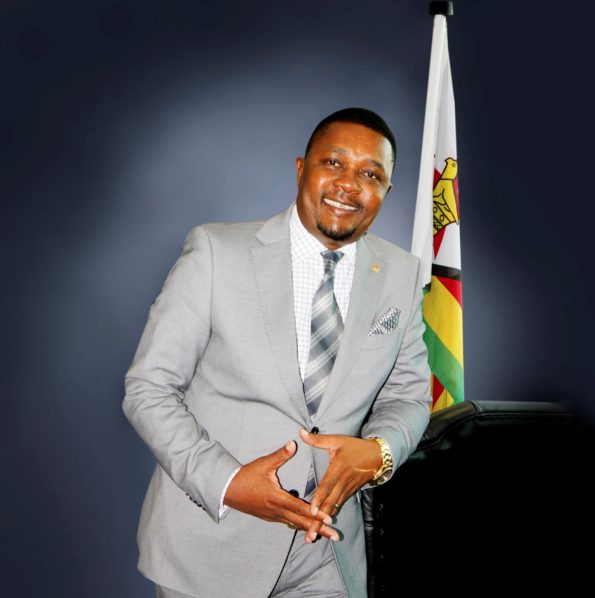
Formal launch for Dr. Walter Mzembi to become Secretary General of UNWTO
The African Union-endorsed candidate for the post of Secretary General of the United Nations World Tourism Organisation – UNWTO – Dr Walter Mzembi, Zimbabwe’s Minister of Tourism and the Hospitality Industry, and the current Chairperson of the UNWTO Regional Commission for Africa, is set to formally launch his candidature at a landmark reception event to be held in Madrid, Spain on 19 January, 2017.
The UNWTO has its Headquarters in Madrid. Invited guests include representatives of all UNWTO Member States, the Secretary-General of the UNWTO and all Executive Directors of the Organisation, as well as senior representatives of the Spanish Ministries of Foreign Affairs and Tourism.
The reception will take place at the prestigious Torre de Cristal, in the Four Towers central business district of downtown Madrid.
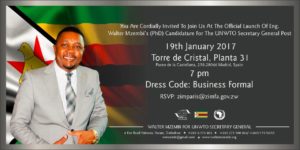
Unanimously endorsed by African Heads of State and Government at the AU Summit held in Kigali, Rwanda in July, 2016, Dr Mzembi thus assumed the mantle of Africa’s candidate for the top UNWTO post – a position which has never before been held by an African.
In its confirmatory letter of endorsement, addressed to the Secretary-General of the UNWTO, the African Union Commission stated that:
“ It is the firm conviction of African Heads of State and Government – as evidenced by their unanimous endorsement of Dr Mzembi’s candidature – that he has the qualifications, skills and competence, the vision and, equally as important, the drive and passion to successfully build on the remarkable legacy bequeathed to global tourism by His Excellency Dr Rifai, and to lead the Organisation and global tourism to new heights of relevance, recognition and results – tourism being an effective vehicle for sustainable development, the building of deeper understanding between peoples and cultures and for the reinforcement of the quest for greater global harmony and peace”.
Dr. Mzembi has served as Zimbabwe’s Minister of Tourism and the Hospitality Industry since 2009. Prior to that, he held various positions in both the public and private sectors in Zimbabwe and internationally – including heading the Zimbabwe delegation to the ACP-EU Joint Parliamentary Assembly for three consecutive years.
He has represented his country on the UNWTO Executive Council and is currently serving his second consecutive term as Chairperson of the UNWTO’s Regional Commission for Africa.
Dr. Mzembi has a long-standing, deep and abiding passion for tourism in all its many facets, as well as a well-defined and clearly articulated vision for the future development of the global tourism industry under the umbrella of the UNWTO.
The launch event in Madrid will provide an appropriate opportunity and platform for Dr Mzembi to outline his vision and to provide an overview of how, if elected Secretary General, he intends to lead the UNWTO to those “new heights of relevance, recognition and results”.
For more information on Dr. Mzembi also see: http://www.waltermzembi.org/
Worldtourism Wire readers and media interested to attend please email: [email protected]

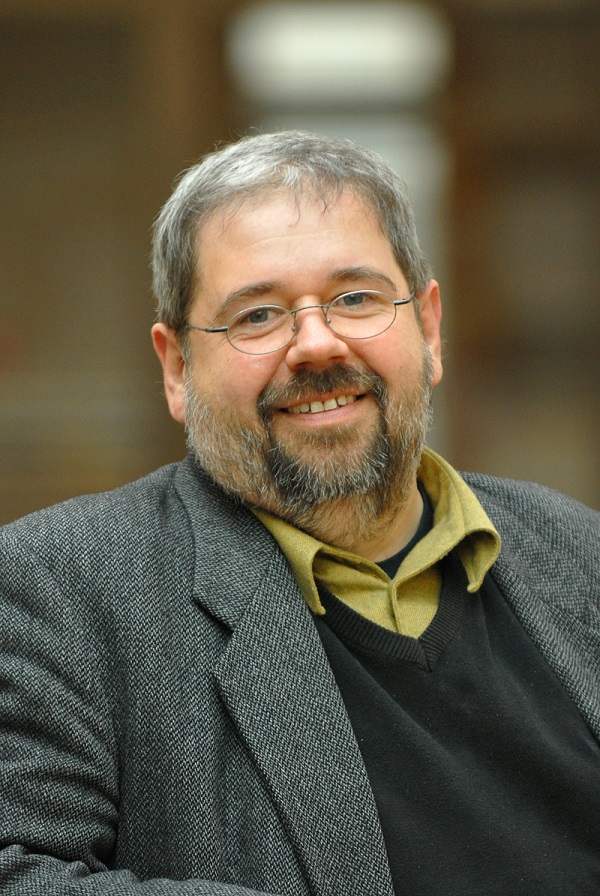
Prof. Dr. Wolfgang Georg Arlt appointed member of the ‘UNWTO Panel of Tourism Experts.’
Hamburg, 05.01.2017. The United Nations World Tourism Organization (UNWTO) has recently appointed Prof. Dr. Wolfgang Georg Arlt as a member of the ‘UNWTO Panel of Tourism Experts’. Prof. Arlt is a sinologist and professor with more than 35 years of practical and academic experience in Chinese tourism, and is Head Director at the Chinese Outbound Tourism Research Institute and Professor in international tourism management at the West Coast University of Applied Sciences in Germany.
As a leading expert in the field of outbound Chinese tourism, Prof. Arlt’s role as one of 500 appointed specialists will be to offer support and leadership expertise to the tourism sector as promoted by the UNWTO in advancing tourism policies and knowledge worldwide via the UNWTO Barometer.
Commenting on his latest accolade, Prof. Arlt stated that he is ‘honoured to be included in this distinguished group of experts, and is proud to play a role in supporting tourism as a form of intercultural communication in uncertain times.’ As Taleb Rifai, outgoing Secretary General of the UNWTO stated in January, ‘tourism is increasingly and rightly being recognised as a sector that can help usher in a better world.’
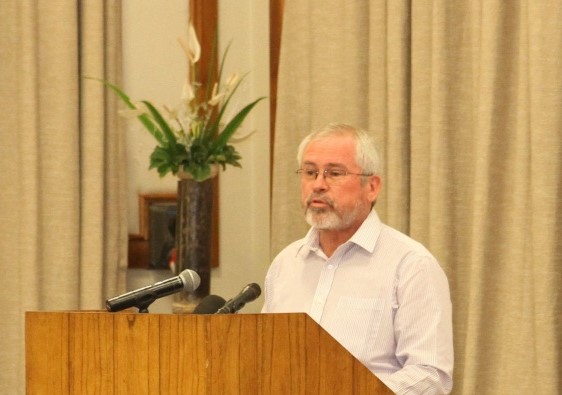
Maurice Loustau-Lalanne, the New Minister of Tourism for Seychelles to be sworn in
Following the approval by the Seychelles National Assembly Ambassador Maurice Loustau-Lalanne is scheduled to be sworn in Friday morning as the new minister of Tourism, Civil Aviation, Ports & Marine by President Danny Faure. The president expressed his appreciation for the support of the Members of the National Assembly.
President Faure said that Minister Loustau-Lalanne would hold the portfolio for Tourism, Civil Aviation, Ports & Marine.
Former Minister Alain St.Ange surprisingly announced his resignation yesterday to open his schedule and continue his campaign to become the new Secretary-General of the United Nations World Tourism Organization (UNWTO)
In March of 2011 Seychelles President, Mr. James Michel had appointed Ambassador Maurice Loustau-Lalanne has the Acting Executive Chairman of Air Seychelles for a three-month period, following the resignation of Captain David Savy.
In 2008 he was the CEO and chairman of the Seychelles Tourist Board (STB). In 2015 Ambassador Maurice Loustau-Lalanne was the Principle Secretary for Foreign Affairs.
In June of 2015 he was appointed Secretary of State.
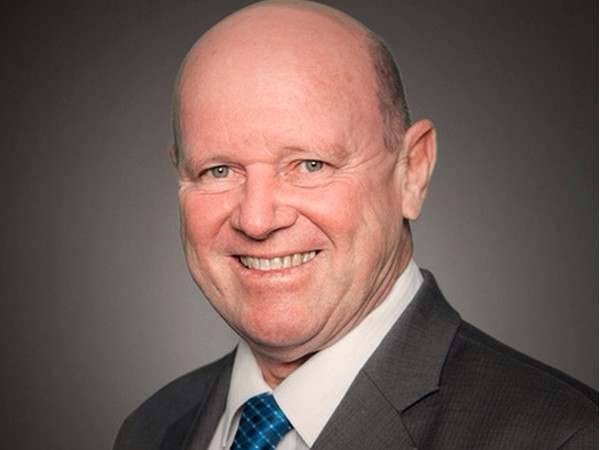
Alain St.Ange resigned as Minister to enter UNWTO race for Secretary General
The outspoken and most active and out of the box thinking ministers of tourism resigned. The Seychelles Minister of Tourism, Civil Aviation, Ports & Marine presented his letter of resignation to the Seychelles President Danny Faure.
His reason: He wants to enter the ever bigger getting race to become the UNWTO Secretary General. He will be the second African minister entering the race.
St. Ange joined the Government of Seychelles in early 2009 as Director of Marketing at the Seychelles Tourism Board and a year later, in June 2010, he was promoted to the position of CEO of the Tourism Board falling under the Office of the President. On the 14th March 2012, Mr St.Ange was appointed as Minister responsible for Tourism and Culture, a position he held until the recent Cabinet of Minister reshuffle of 2016, when he was given more responsibility as head of the Ministry of Tourism, Civil Aviation, Ports and Marine.
In his letter of resignation Minister Alain St.Ange writes:- “As part of the Government I have been able to serve my Country and the People of Seychelles in a way that made a positive difference to the lives of so many as I also did my part for the economy of our Country. During the time when I was part of the Government, I know that I worked tirelessly for our country’s tourism industry and the results today speak for themselves. The Ministry initiated a lot and, with the support of the private sector, we delivered for Seychelles”.
Over a year ago the name of Minister Alain St.Ange was mentioned as a possible candidate for a position at an International Organisation. “The time to formally put my name forward as a candidate has arrived and I will need to be undertaking some travel from very early in January for this coming election. The extended absence from the office and from the country will not be conducive to my existing position” Minister St.Ange said asking the President to accept his resignation.
“I take this opportunity to thank the Government and People of Seychelles for my time as Minister and I wish Seychelles continued success,” Minister Alain St.Ange said.
A Press Release from the Office of the President of Seychelles confirmed Minister Alain St.Ange had written to President Danny Faure expressing his intention to apply for the post of the Secretary-General of the Untied Nations World Tourism Organisation (UNWTO).
In accepting the resignation, President Faure thanked Minister St.Ange for the enormous contribution he had made to the promotion and development of tourism and culture in Seychelles, and for his support and advice on many matters discussed in Cabinet.
President Faure had also written to the Speaker of the National Assembly, seeking the Assembly’s approval for the appointment of Ambassador Maurice Loustau-Lalanne as Minister.
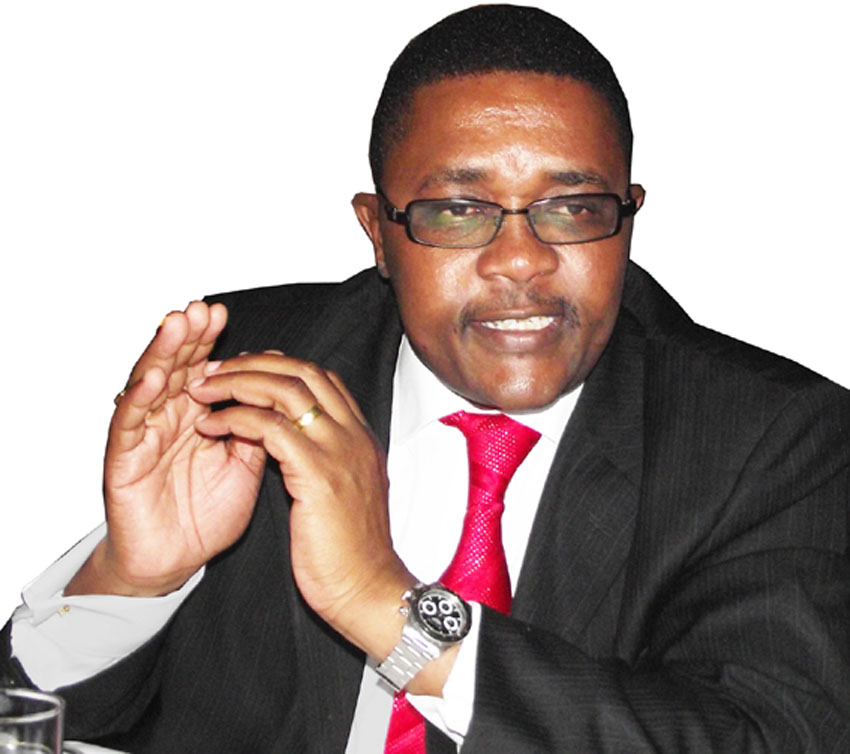
The KAZA Univisa Re-Launched between Zimbabwe and Zambia
Zimbabwe and Zambia relaunched their Kavango Zambezi Transfrontier Conservation Area (KAZA) Univisa on 21 st of December 2016 at a dazzling ceremony hosted by the Ministers of Home Affairs from both countries in Livingstone, Zambia. The countries’ Ministers of Tourism Hon Dr Walter Mzembi, the Minister of Tourism and Hospitality Industry of Zimbabwe, the current UNWTO Regional Commission for African Chairperson and the
African Union (AU) candidate for the UNWTO Secretary General post for the elections to be held in 2017, and his Zambian counterpart, Minister of Tourism and Arts of Zambia, Hon Banda (MP) who is also the Vice Chairperson of the UNWTO Executive Council, also put their signatures on the Agreement, sealing its implementation that kicked off immediately after the signing ceremony on the same day.
The event, which was punctuated by worldclass artistic performances from both countries, marked the resumption of a common Univisa between Zimbabwe and Zambia which will soon be expanded to Angola, Botswana and Namibia in the second phase, and later on incorporate Mozambique, South Africa and Swaziland. Eventually, it will cover the entire SADC region which is a sub-regional economic bloc of fifteen countries. Tourism Industry players from both countries were in attendance.
The KAZA Univisa, which is a legacy project initiated by the two countries during the 20 th Session of theUNWTO General Assembly is a huge milestone in the history of travel in which the UNWTO General Assemblyhas left permanent footprint. The 20 th Session General Assembly held by Zimbabwe and Zambia wasdescribed by the UNWTO Secretary General Dr Taleb Rifai as “the best ever General Assembly in the historyof General Assemblies” during the opening ceremony in Victoria Falls, Zimbabwe in 2013, and credit goes to
Minister Mzembi and his Zambian counterpart for working hard and demonstrating that the Ministers have thecapacity to organize and host global events.
It is not by coincidence that the African Union has put forward Hon Dr Walter Mzembi as its sole candidate forthe post of UNWTO Secretary General that falls vacant in 2017 with election expected to be held in Spain inMay, 2017. It is interesting to note that in the history of the UNWTO, African has not had an opportunity toprovide a Secretary General while Europe has held the post on three occasions, the Americas once and thecurrent one, Dr Taleb Rifai is from Jordan in the Middle East. It is therefore imperative that in the next electionin May, the world is highly expected to show magnanimity recognizing an unofficial principle of rotation so thatit allows other regions to provide a candidate to the organization going forward. Dr Walter Mzembi that the
African Union have endorsed, is a pragmatic man who comes with his craft competences and his commitmentis undoubted. Over the years, he has demonstrated humility, willingness to learn from the current Secretarygeneral and indeed, has reached out to all the Six UNWTO Regional Commissions that has given him deepinsight of the critical issues that need redress across the globe to make tourism work for everyone. The is an adage that says, charity begins at home and he has shown clear vision and taken practical steps in championing the creation of a common visa in the Southern African Development Community (SADC) region by being the fulcrum anchoring the debate and call for seamless travel as a way of facilitating tourism, trade and investment as he says “all things start with travel in the Travel-Travel- Invest matrix.” Over and above that he is an ardent advocate of the “open skies policies” as he is fully aware that 54% of international arrivals realized in 2015, reached their destination by air hence it is critical to prioritize and allow destination accessibility and seamless movement of people as quickly as is possible. His philosophy in opening up not only in Africa, but across the globe is a sound pragmatic proposition that resonates with his vision which ultimately facilitate regional growth of tourism with equity. The Univisa that Dr Mzembi signed allows visitors from 65 countries to travel between Zimbabwe and Zambia using the same document, and the announcement and signing of the agreement was welcomed by the tourism fraternity.
In his remarks, Dr Mzembi said “I am delighted for this privilege to make history. All of us are here because ofour commitment to see a definitive seamless travel between the two countries and indeed, the whole Kavangogreat Vision by the leaders of the two countries to have seamless travel because the Agreement had takentime to be concluded. He said, this will not happen again in the future. He reminded other Ministers presentthat the world is fast becoming a more open global village in terms of travel openness, and key among the enablers is visa liberalization globally and open skies.
According to the Africa Visa Openness Report published by the Africa Development Bank (AfDB) in 2016, Southern Africa was lagging behind in the visa openness index. The same report notes that 75% of countries in the top 20 most visa-open countries are in West Africa and East Africa. It is not by coincidence that the East
Africa Common Tourist Visa involving Rwanda, Uganda and Kenya has seen 25% growth in tourist arrivals in the past year. The three East African countries have popularized their destinations as a collective at Travel Shows, and one good example was at the World Travel Market-2016 held in London. Currently, Rwanda’s leading economic pillar is tourism owing to its visa openness. With Zimbabwe and Zambia back in the fold of increasing their visa openness, the index of the two countries on travel facilitation is likely to improve.
Hon Dr Mzembi reminded people and colleague Ministers present that there was no magic in tourism than opening up the destination. He cited the Christian Bible Isiah 60:11 “Keep thy Gates open, do not close them during the day, do not close them during the night so you may enjoy the wealth of the Gentiles with their Kings in triumphal procession” as the philosophical foundation guiding tourism destinations so that they may enjoy the wealth of other countries. He further reminded delegates of the triumphal processions from 1 Kings 10 (1 -3), and quoted the Queen of Sheba when visiting King Solomon “Arriving at Jerusalem with a very great caravan (convoy) – with camels carrying spices, large quantities of gold and precious stones”.
“This is the wealth referred to by Isiah, which many of the tourists who visit destinations carry, arriving with money that they spend in destinations. But, what is key is that the Queen of Sheba went on to endorse the destination reminiscing about her experiences, and she says “The report I heard in my own country about your own achievements and your wisdom is true” said Dr Mzembi.
Manifest to this, is the testimony of the 20 th Session of the UNWTO General Assembly hosted by the two countries, which bid Dr Mzembi together with Zambia were at the forefront and won to host the event in Livingstone and Victoria Falls in 2013 where delegates were surprised and charmed by the Hospitality, the Peace, Security, pristine flora and fauna of the destinations, which today remain a huge competitive edge as far as tourism in the sub-region is concerned. By signing the KAZA Univisa Agreement for a permanent common visa, the two countries have taken giant steps to deliberately open up to boost tourism arrivals.
In Africa, Ghana, has completely opened up to African nationals who receive visas on arrival following thefootsteps of Rwanda that did the same in 2014. The African Union also launched the African Passport in July 2016, Kigali, Rwanda at the 27 th African Union Summit Heads of State and Government Summit, which, at that level, also endorsed Hon Dr Walter Mzembi as its UNWTO Candidate for the post of Secretary General. Thus,visa openness and the move towards a common passport are key milestones that should give Africa hope to integrate. The idea of an Africa with seamless borders is the way to go. Africa is endowed with vast natural resources including wildlife, unrivalled tourism products, minerals and rich soils, but its performance has been fluctuating at a paltry 3-5% according to the UNWTO. If Africa can combine its strengths, it has huge potential to unlock value of the tourism for revenue generation since tourism is a low hanging fruit, and some of the structural reforms needed is destination openness that Hon Dr Mzembi is championing.
During the same meeting, Hon Mzembis said “If we have set our minds on leveraging tourism for rebuildingand recovery of our economies, we must do so unabated. Tourism is the lowest hanging fruit ready for picking.
